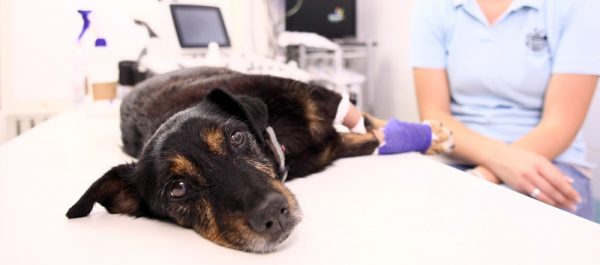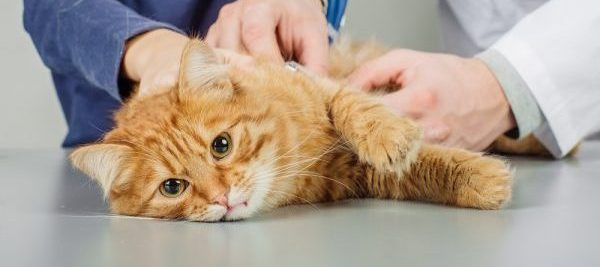What Do Soft Tissue and Orthopedic Surgeries in Pets Entail?

Much like humans, pets can suffer from a number of different painful ailments that may require surgery as treatment. At VRC , our board-certified surgeons are prepared for your pet’s surgical needs, including veterinary soft tissue and orthopedic surgeries.
Dogs and cats of certain breeds may be more prone to diseases and conditions that require surgery at some point during the course of their lives. Whether the problem with your pet is congenital, traumatic or age-related, and either soft tissue or orthopedic, the veterinary surgeons at VRC are ready to help.
VRC is a great option for people near Malvern, Pennsylvania or the Greater Philadelphia area who have pets in need of surgical care. Our team is dedicated to helping treat your beloved pets during all stages of the surgical process.
Orthopedic Surgery
Veterinary orthopedic surgery is used to treat musculoskeletal issues found in pets. If a pet suffers from a traumatic injury that leads to, fractured bone or torn ligament, or if he or she has a degenerative condition like osteoarthritis, your family veterinarian may refer you to an orthopedic surgeon for treatment. It’s important to keep in mind that orthopedic surgeries can require multiple follow-up visits and radiographs to monitor progress during recovery.
Soft Tissue Surgery
Veterinary soft tissue surgery encompasses procedures relating to the internal organs, skin and muscle. Some common soft tissue surgeries procedures obstructive intestinal foreign body, shunt, airway, reconstructive, and cancer-related surgeries
One common need for a soft tissue surgery is tumor removal. When a cat or dog has a potentially cancerous mass, it is treated much like tumors in humans, and when possible, soft tissue surgeons will remove it. Your pet would then meet with an oncologist, if needed, for further care.
What to Do After Your Pet’s Surgery
After a surgical procedure, your dog or cat will require time in the hospital and special care at home. Our surgeons will discuss post-operative care with you during your appointment so you can better understand what the surgery will entail and what care will be needed. While each surgery and pet is different, there are a few common post-operative care tips that can help you make it through.
If our doctors are concerned about your pet’s well-being immediately after surgery, he or she may want to keep your pet at the hospital for a few days. This is normal—especially if the surgery was extensive to make sure they are comfortable and recovered from their anesthesia in the initial post-operative period. However, if you pick your dog or cat up only a few hours after surgery, there are a few things you should expect.
First, your dog or cat will need a lot of rest. The first 12 to 24 hours after surgery, they will likely be groggy and confused. This is a normal side-effect of anesthesia and should wear off after 24 hours or so. After this point, you will need to make sure that your pet continues getting enough rest to heal properly.
To help your pet heal, you will need to make sure that they aren’t too active. It can be helpful to confine them to a small room or pen in your home to prevent them from running around, which can hinder the healing process and even cause infection. You can add blankets or bedding to the room or kennel to make your pet more comfortable.
Even if you have to keep your pet in a restricted area, you need to be able to give him or her plenty of attention. Surgery causes stress for your pets and you can help calm them down by sitting and talking to them. Further stress can affect healing times and require longer confinement.
In most cases, your pet will be prescribed medications for you to administer while he or she recovers. Antibiotics and pain relief medications help your pet to heal properly without infection or severe pain. Dogs that are usually extremely active may also require sedatives. It can be tricky to get cats and dogs to take medications, but it is very important that you find something that works so your pet can get the medication they need. Pill pockets often work wonders for a picky pet.
You will also need to monitor the incision from your pet’s surgery. While you may not need to clean it, you need to check it occasionally to make sure it doesn’t look like it is getting infected and that it is healing properly. You also need to prevent your pet from licking and scratching the incision site. At VRC, we always provide you with an e-collar after surgery to ensure your pet does not aggravate his or her incision. If you notice anything out of the ordinary, please give us a call for further instruction.
Especially in the case of orthopedic surgery, your cat or dog may require physical rehabilitation therapy. Our in-house physical rehabilitation center is an ideal way after surgery to get your pet comfortable and moving after surgery. At VRC, we offer a variety of different rehabilitation services to help get your pet back to his or her normal, pain-free life., Water treadmill, acupuncture, laser therapy, and massage are just a few of the treatments VRC can use to help your pet regain mobility and prevent future injuries, as well as provide pain relief. Physical rehabilitation is also beneficial for the conditioning of canine (and feline!) athletes as well as to keep arthritic pets mobile and active.
Remember that after any kind of surgery, your pet’s surgeon may request subsequent visits to check on your pet’s progress. After each visit, your vet may have new instructions for helping your pet heal. It can be frustrating, but you and your vet have the same goal—getting your pet well. Be honest with your pet’s doctor about what you can and cannot handle, however, as it may affect further treatment plans.
If your vet believes that your cat or dog is suffering from an ailment that requires either orthopedic or soft tissue surgery and you live in the Malvern, Pennsylvania or the Greater Philadelphia area, give VRC a call today at 610-647-2950.






 Email
Email



